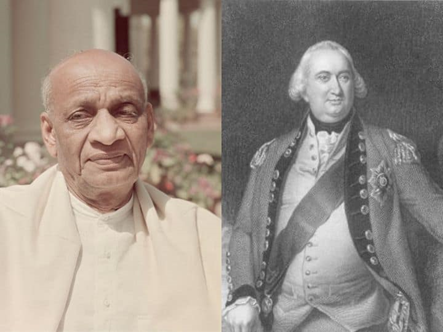The Role of Civil Services in Democracy – Part 1
Relevance
- GS Paper 2 Role of civil services in a democracy.
- GS Paper 4 Public/Civil Service Values and Ethics in Public Administration.
- Tags: #upsc #civilservants #civilservices #gspaper2.
Why in the News?
- Civil services play a pivotal role in the functioning of a democratic nation like India. These administrative bodies, composed of career bureaucrats, serve as the backbone of government operations.
- Their functions encompass policy implementation, public service delivery, and ensuring the rule of law. In India, civil services have a unique historical evolution and distinctive features when compared to the American model of bureaucracy.
What Are Civil Services?
- Civil services are the administrative apparatus of a government, tasked with the execution of public policies, management of government agencies, and ensuring the welfare of the citizens.
- These services are staffed by career bureaucrats who are selected through a rigorous competitive examination. They are responsible for a wide range of functions, including policy formulation, implementation, and public service delivery, among others.
- Civil servants are expected to be politically neutral and dedicated to the service of the state and its citizens.
Why Are Civil Services Important in India?
Civil services play a crucial role in the Indian democracy for several reasons:
- Policy Implementation: Civil servants are responsible for implementing government policies and programs. They bridge the gap between elected representatives and the actual execution of policies, ensuring that they reach the intended beneficiaries.
- Service Delivery: The effectiveness of public services, such as healthcare, education, and public infrastructure, largely depends on the efficiency and integrity of civil servants. They are responsible for delivering essential services to the citizens.
- Rule of Law: Civil servants are essential for upholding the rule of law. They ensure that government actions are consistent with the constitution and the legal framework.
- Continuity and Stability: While political leadership may change due to elections, civil servants provide continuity and stability in government administration. They have the institutional memory and expertise to keep government functions running smoothly.
- Advisory Role: Civil servants often provide valuable advice and expertise to political leaders, aiding them in making informed decisions.
- Accountability: Civil servants are accountable for their actions and decisions, both to the government and to the citizens. They are subject to the principles of transparency and accountability.
Indian Civil Services vs. the American Model
The Indian civil services differ from the American model of bureaucracy in several ways:
- Recruitment and Selection: In India, civil servants are recruited through competitive examinations such as the Civil Services Examination (CSE). The American model typically relies on political appointments for key administrative positions.
- Political Neutrality: Indian civil servants are expected to be politically neutral and serve the government of the day, regardless of the political party in power. In contrast, the American bureaucracy often witnesses political appointees who may align with the ideology of the party in power.
- Permanence and Continuity: Indian civil servants enjoy a degree of permanence and continuity, which is essential for consistent policy implementation. In the U.S., political appointees may change with each administration, potentially leading to policy inconsistencies.
- Generalist vs. Specialist: The Indian civil services typically follow a generalist model, where officers can serve in various roles over their career. In the U.S., the civil service includes a mix of generalists and specialists, with specific expertise in their respective fields.
- Role in Policy Formulation: In India, civil servants are closely involved in policy formulation, often acting as advisors to ministers. In the American model, policy formulation is primarily the responsibility of elected officials.
Evolution of Civil Services in India
- Ancient Origins: The Indian civil service system is one of the oldest administrative systems globally, with its roots tracing back to the Mauryan period. This historical foundation reflects the enduring importance of bureaucracy in India’s governance.
- Kautilya’s Arthashastra: The ancient text, Kautilya’s Arthashastra, provided foundational principles for civil services. It outlined criteria for selecting and promoting civil servants, conditions of loyalty for their appointment, methods for performance evaluation, and a code of conduct, laying the groundwork for the ethical and effective functioning of the bureaucracy.
- Medieval Contributions: During the medieval period (1000-1600 AD), Akbar the Great played a significant role in founding and nurturing the civil service in India. His civil service had a dual orientation, focusing on welfare and regulation.
- Mughal Administration: In medieval India, the Mughals established their civil service systems, which revolved around managing land revenue, overseeing government factories, and establishing a patrimonial state.
- British Colonial Influence: The introduction of the British colonial rule in the 18th century significantly shaped the modern civil services in India. The British established the Indian Civil Service (ICS), a professional administrative cadre, to govern the country.
- Post-Independence Adaptation: After India gained independence in 1947, the civil services underwent adaptations to meet the requirements of a democratic nation. The introduction of the All India Services, including the IAS, IPS, and IFoS, was a crucial step in restructuring the bureaucracy to serve the diverse needs of the Indian populace.
Father of Civil Services in India
Cornwallis – Father of Pre Independence Indian Civil Service
- Establishment of a Merit-Based System: Lord Cornwallis is credited with introducing a merit-based system for recruiting civil servants in India during his tenure as Governor-General in the late 18th century.
- Standardization of Administrative Practices: Cornwallis’s reforms aimed at standardizing administrative practices and creating a professional cadre of civil servants. His efforts led to the creation of an efficient and impartial bureaucracy that played a pivotal role in British colonial administration.
- Legacy of Permanence and Impartiality: Cornwallis’s emphasis on political neutrality and permanence in the civil service established a tradition of continuity and impartiality.
- Influence on Administrative Structure: Cornwallis’s administrative reforms significantly shaped the administrative structure in India, and his legacy as the “Father of Indian Civil Service” underscores his pivotal role in the development of the Indian bureaucracy.
Sardar Patel – Father of Independent India’s Civil Service
- Integration of Princely States: Sardar Vallabhbhai Patel played a monumental role in integrating over 560 princely states into the newly independent India. This monumental task required a well-organized and efficient civil service to oversee the process of accession and administrative consolidation.
- Creation of the All India Services: Patel’s vision and leadership led to the establishment of the All India Services, which include the Indian Administrative Service (IAS), Indian Police Service (IPS), and Indian Forest Service (IFoS). These services were designed to provide a dedicated and professional cadre of civil servants to serve the nation.
- Commitment to Unity and Nation-Building: Patel’s commitment to the principles of unity, integrity, and nation-building ensured that the civil services in independent India played a crucial role in maintaining stability and fostering development in the nascent nation. His vision set the stage for a strong, unified administrative framework.
In conclusion, the paramount role of civil services as the cornerstone of efficient governance in democracies likes India. Their historical evolution, rooted in ancient principles and shaped by visionary leaders, has left an indelible mark on the nation’s administration. These services, embodying principles of continuity, political neutrality, and professionalism, remain indispensable for policy implementation and public service delivery, fostering the nation’s progress and stability.
| Mains Question
“Discuss the concept of ‘Civil Services’ in the context of governance. Explain why Civil Services are of paramount importance in India, elucidating their role and significance in the functioning of a democratic state.” |









